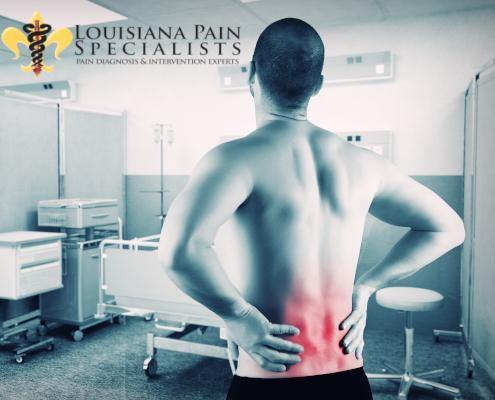
Low Back Pain: Causes, Symptoms & Treatments
Low back pain is one of the most common medical problems causing loss of physical activity. It is one of the leading reasons for people visiting a doctor affecting around 80% of adults at some point in their lives. The lower back is also called the lumbar region and starts below the rib cage. The pain in this area can be categorized as acute, subacute or chronic. Acute pain usually last from a few days to a month, subacute pain lasts between 4 and 12 weeks and chronic pain lasts 12 weeks or longer. Pain in the lower back can heal over time without treatment and it normally does not require immediate medical attention. However, chronic back pain and severe back pain should not be ignored and it is advised to seek a medical opinion about options to medicate and even resolve lower back pain problems.
Symptoms
Symptoms for lower back pain can range from a dull ache to a shooting/stabbing pain. The pain can make it difficult and uncomfortable to sit, move or stand up straight. It is important to seek immediate medical help, if the pain is a result of an accident, injury or other trauma. Other warning signs include fever, nausea, loss of bowel/bladder control, numbness in the legs, groin area, and/or the pain interrupts sleep.
Causes
The causes of lower back pain can be viewed as being mechanical, organic, or idiopathic. A mechanical back pain can be triggered by movement of the spine that injures the facet joints, discs, ligaments, muscles or soft tissues. It can be triggered by muscle strains, pinched nerve, spinal stenosis, degenerative disc, or abnormal spinal curvature. According to Dr. Suneil (Neil) Jolly, “Lumbar facet dysfunction is a common cause of low back pain. This syndrome appears to involve anatomic and pathophysiologic degeneration, and the elderly are more commonly affected.” The organic pain is attributed to disease such as spinal cancer, kidney stones, arthritis, weakening or enlarging of the aortic blood vessel, discitis or even fibromyalgia. The idiopathic pain refers to an unknown cause. People are at an increased risk if they are overweight, sedentary or lifting heavy items at work or in activities.
Treatments
Pain that is due to muscle strain will usually get better on its own with the help of an over the counter pain reliever and heat/cold compresses. Many studies have found that patients who remain active, while avoiding movements that trigger the pain, will have a better healing process. Those patients that stayed in bed experienced more pain and recovered slower than those with a modified activity level. Mild back pain can also feel better with over the counter pain relievers. If the pain is severe, your doctor may recommend prescription medication. An Epidural Steriod injection or Lumbar Sympathetic Nerve Block may provide short-term pain relief. Sometimes surgery may be needed if there is a vertebral fracture, spinal infection, spinal tumor, spinal nerve compression, weakness or loss of function. Do not live with the pain, call the doctors at Louisiana Pain Specialists for help today.
